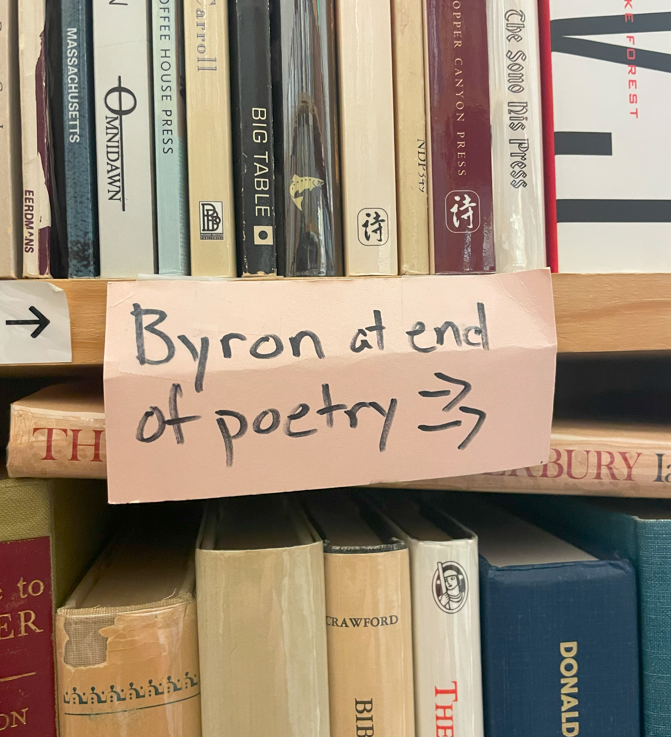“Byron at the End of Poetry”
And, logically, the paper sign must mean that Lord Byron’s
poems refuse to conform to the shelving order, so his work is piled
at the far end of the poetry section in this Bellingham used book shop,
but–what if–at the end of poetry, there’s Byron?
For a year it was true; walking home from the carpool at the end
of each poetry workshop in the prison where I interned, it was
my friend Byron’s voice on the other end of the call. His voice
painted the Seattle streets like rain.
As we talked, the buses stopped running, and our conversations
carried me three miles through the night, home. At the end of Hugo
House poetry readings and long days in the Image Journal basement:
Byron. Byron was the path I walked.
At the end of poetry, we created a city map with layers all merged:
streets, the water flowing over them through sewers to Sound, topographic
cut corners, radio waves to cellular towers to cables beneath the earth,
a string of words. Byron, at the end of poetry,
began another poem.
